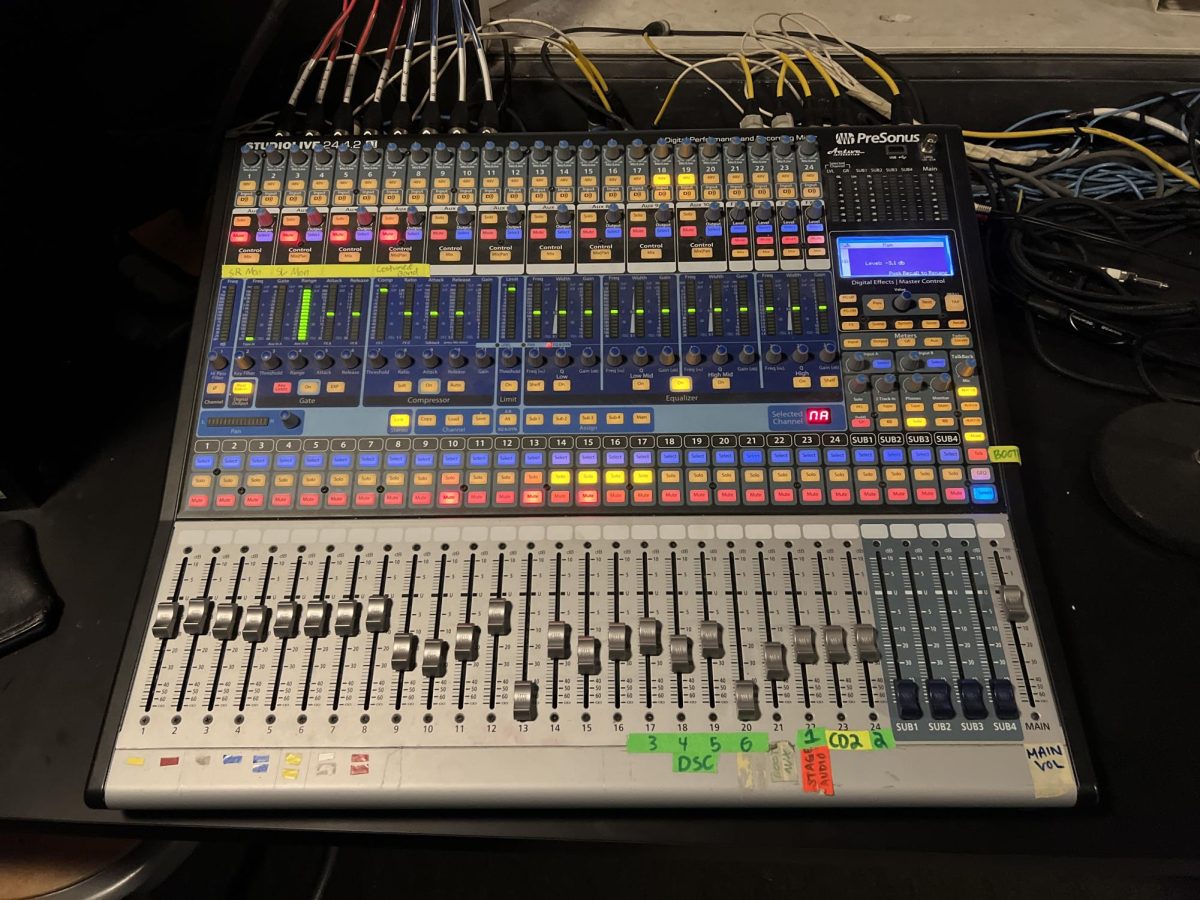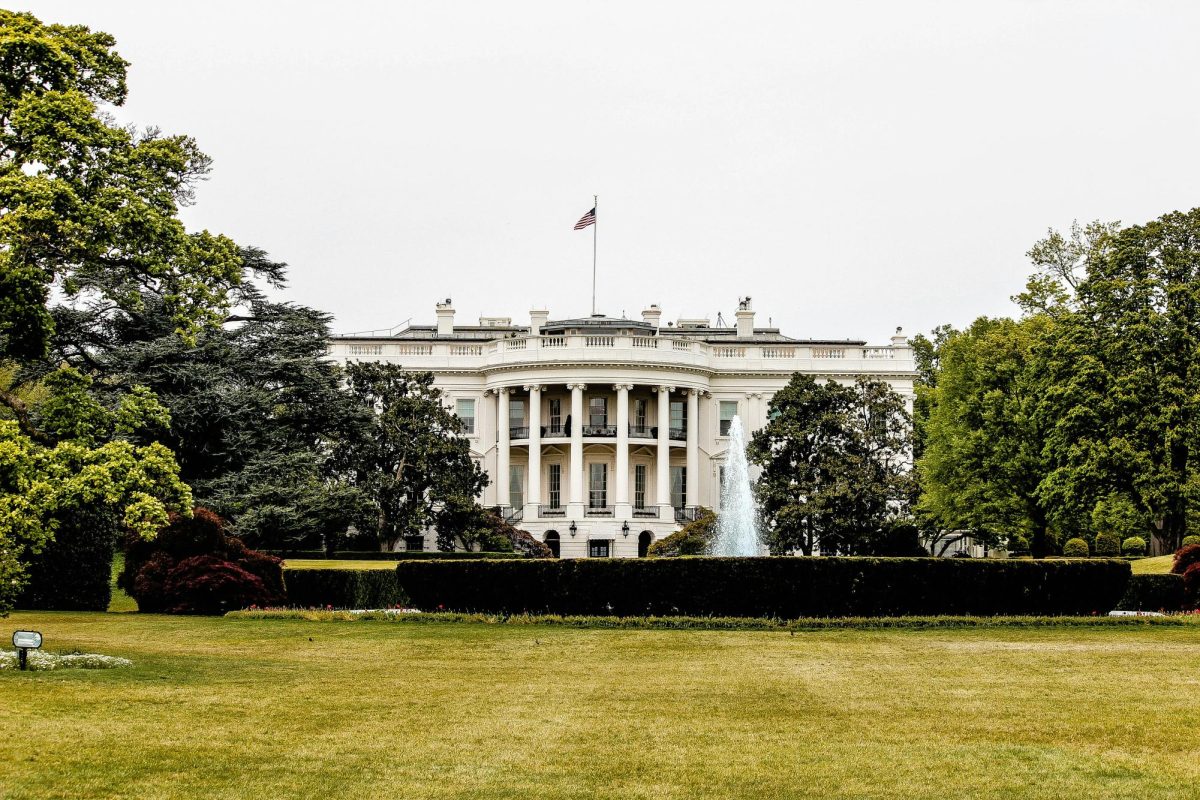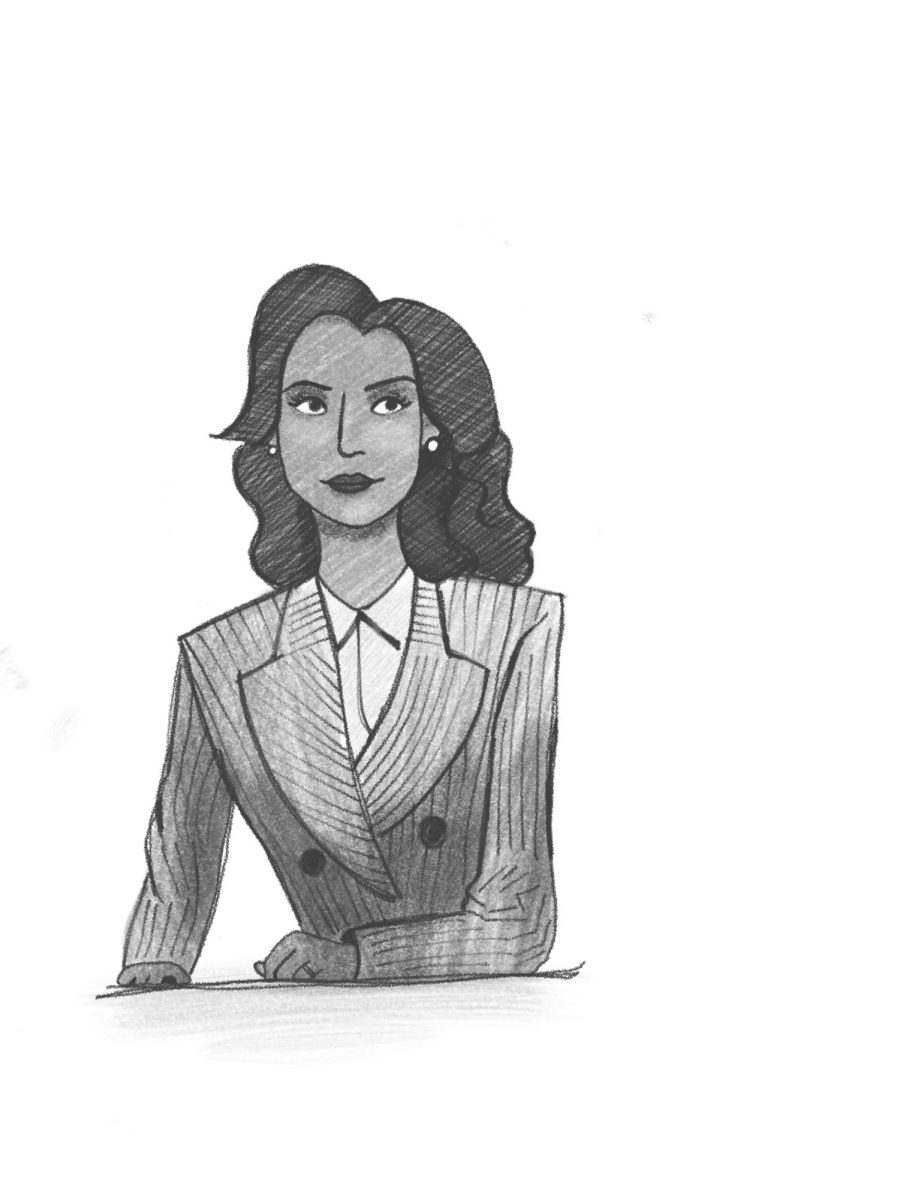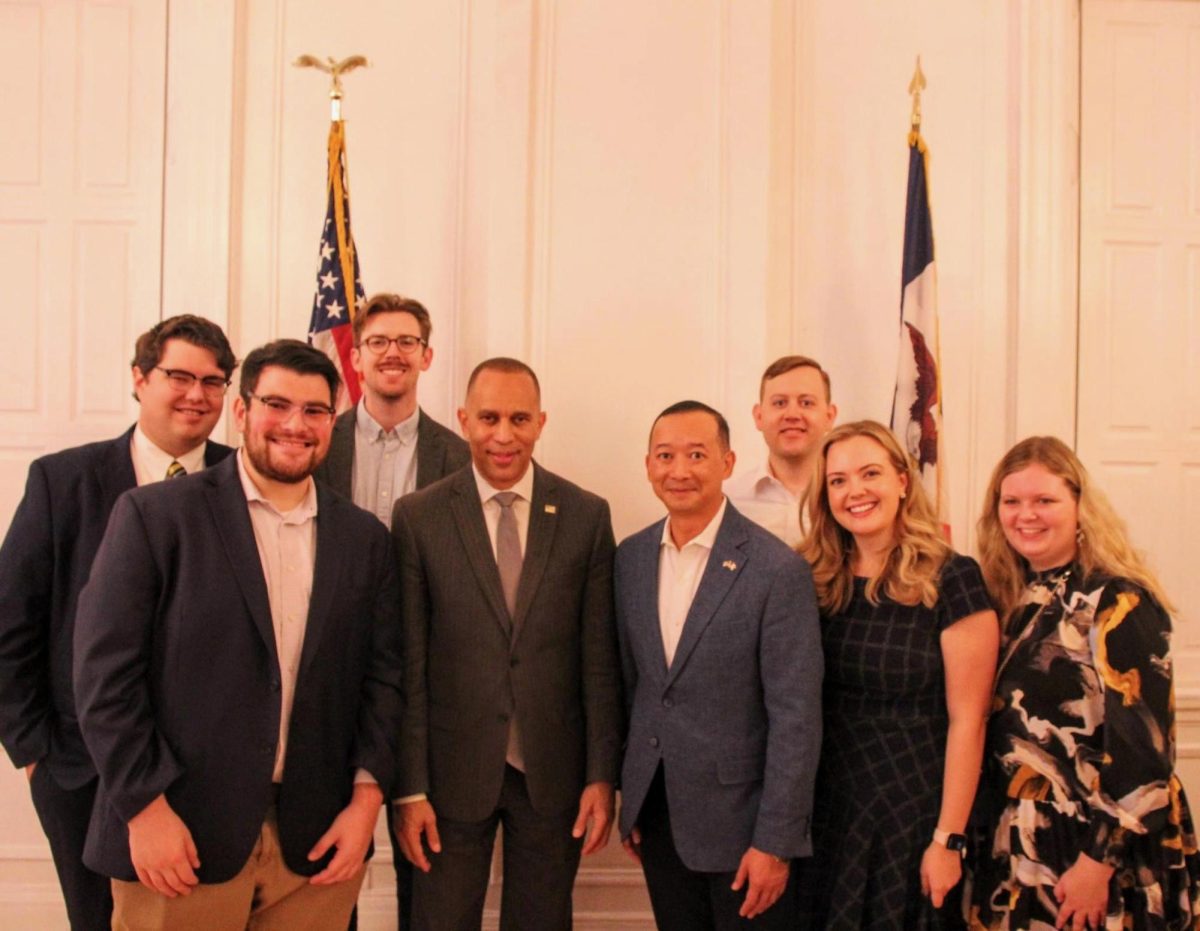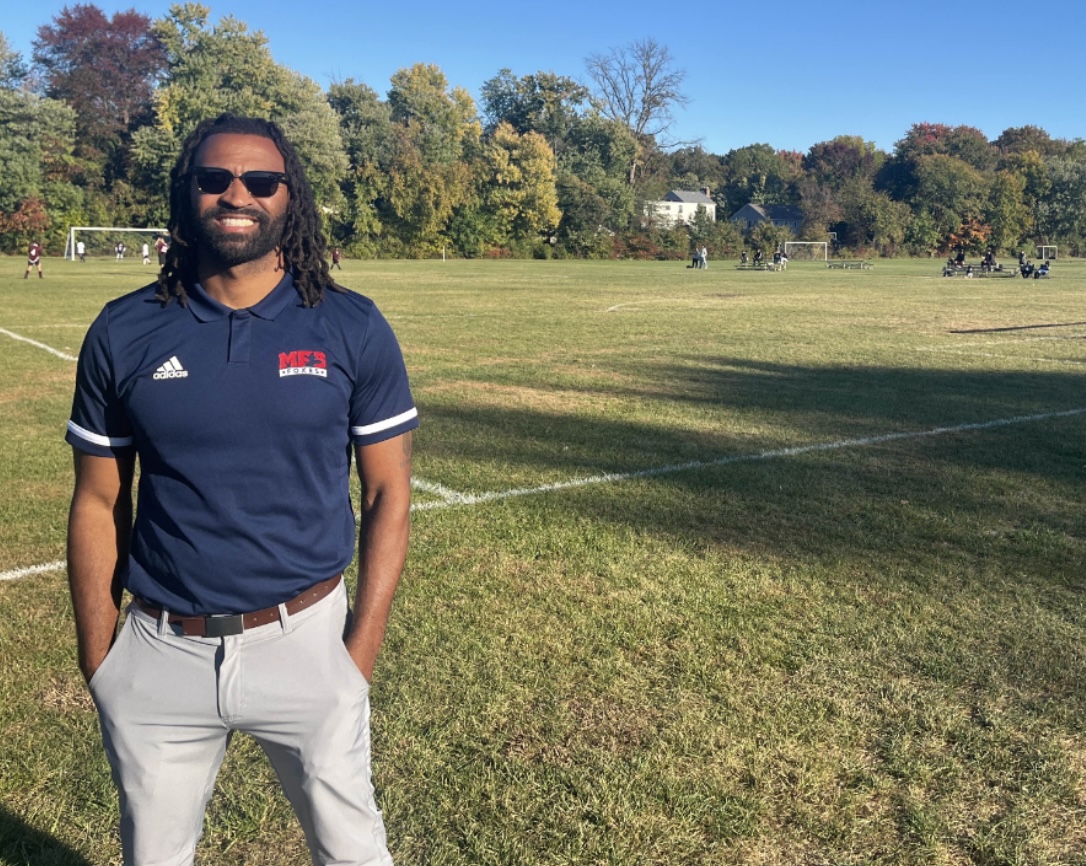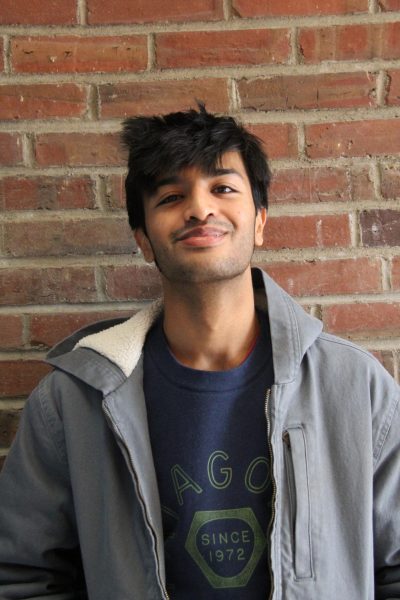In the wake of the 2024 presidential election, American politics have been labeled by many as more polarizing than ever. In fact, the USA appears to be polarizing faster than many of our international democratic peers. Politics – a taboo subject at the dinner table for many, has now come to define large swaths of the American electorate’s personal identity. Political cults such as QAnon have torn apart relationships and left many questioning whether or not the current political environment makes it even possible for intellectual growth and discourse surrounding opposing opinions to occur.
MFS WordsWorth reached out to Himanshu Sahore ’24, a recent alumnus who was an outspoken conservative during his time on campus. Sahore has since seen his political beliefs shift over the years — a process that began during his time at MFS.
WordsWorth: How would you describe your political leanings at the beginning of your high school career?
Himanshu Sahore: I think I was very conservative. I would say I was beginning to get politically inclined in January of 2020 — that was kind of the first year I felt plugged into politics. It was the first year I feel like I kind of started warming up to Donald Trump. From there, I would say I was Republican-affiliated. Being younger, the media I consumed was what I think would probably be considered more comfortable with the far right, or at least definitely alt-right. It starts with stuff like Ben Shapiro. There’s a lot of stuff that people have talked about, about how that can lead to more extreme content, such as Steven Crowder, stuff like that. I would say it was definitely a more extreme conservative viewpoint, not as bad as it would get after Trump lost the election, but still somewhat hard right, I would say.
WW: Why did you get involved during that specific time period?
HS: I kind of find it interesting, because I always consume politically adjacent media, but it has shifted a lot. I used to watch a lot of The Daily Show with Trevor Noah when I was younger. I don’t know why. I just remember, specifically January 2020 [I started paying attention]. I don’t know why. I just [felt] like Trump [was] doing a good job [back then]. [I felt like] the country [was doing] well. And I felt like I identif[ied] as a Republican — I didn’t really understand what that meant [yet].
WW: What about the Republican Party really appealed to you?
HS: [The Republican Party] just felt like it made the most sense. Like, to me, [their philosophy] was just ‘we want the most money given back to people; we want businesses to be prosperous.’
WW: In January 2020, do you think your political engagement had to do specifically with the political climate back then, the pandemic, etc., as well as current events, or do you think it had to do with you coming of age?
HS: I think things got a lot more extreme and hostile after the pandemic. I think it’s just the fact that that was kind of the time period I sort of came of age. Like, I was more independent online. I was using my phone more than I had and I was using it more to sort of explore memes and online content. And during that time, I was just probably more coming of age than anything — I was coming of age into a political climate that hadn’t gotten [too] hostile [yet] at [the] time.
WW: What were your political views while at MFS, and how your political leanings shifted and evolved?
HS: I had to break down my worldview to a certain extent. [At] MFS, the curriculum challenges you to think more globally and consider: Are voices that would not usually [be at the table] at the table? [Voices that] are not what you might call a ‘majority voice,’ [such as the voices of] minorities of gender and sexual orientation and race and so on. [Asking those questions] helped me get more perspective. A lot of it was also just interpersonal, such as talking with people, talking in classes, especially like female liberal classmates, and getting their perspective and seeing how these things were affecting them personally, which helped me recognize the difference between what I thought and how to act with that, especially after Roe v Wade. I remember that. I wouldn’t necessarily say that I’m pro-choice per se, but I definitely don’t think it’s something that I as a man should put too much worry about in terms of legislating. Back when Roe v. Wade happened, I was much more pro-life, even from a law perspective and a legislation perspective. But I think just seeing how much it has impacted people and how much fear people have felt, [I’ve] maybe sort of recognize[d] that even if I don’t agree with how someone else feels, [I can respect that]. I shouldn’t force [my beliefs] upon anybody; that’s undemocratic. And [also], I shouldn’t push people in situations that could lead them into action that could harm themselves. [The issue of abortion should be handled democratically]. I think that the referendums you see are a good thing.
WW: Your senior year, you changed your mind a little bit on labor issues, such as your stance on unions. I believe it was the writers’ strike that changed your mind. Do you want to speak a little bit about that?
HS: I guess when I started thinking, when I was politically involved enough and mature and started thinking about unions, I always supported trade unions, per se. I don’t think that’s a bad thing at all, because I think when you have a very large company pushing people to do things that are very strenuous, very laborious work, there needs to be a way to prevent bad actors, to prevent exploitation in that field. But then I think part of it is also [that] I started watching this content creator called Atrioc, and he makes a lot of very interesting videos about business. I think he represents a left-leaning perspective, per se. It’s just that the way he talked about [labor], it made me sort of recognize, unions [make] stuff more fair, even in industries that I previously wasn’t a fan of unionizing, like Starbucks, for example. I was like: What’s the point of the Starbucks Union? But I sort of recognize — from a worker-centric perspective — why that’s important, [especially, for example,] when it comes to the writers’ strike. Seeing the disparity between what studios make, the way studios treat work, and the sort of unfair nature that they maybe kind of support — I don’t know. I just say it’s a mix of lots and lots of different things, because there was a very much, like a ‘hot labor summer’ where there’s lots of strikes and stuff like that [happened], and so that all being a boiling point kind of shifted my perspective, or, I guess, reinforce the changed perspective that I had.
WW: You graduated and you worked on a Democratic campaign for Congressman Herb Conaway. What motivated you to do that, and how has that changed or reaffirmed any perspectives you may have had?
HS: Well, I just wanted to back a winner. You know what I mean? I had an opportunity to work for somebody — to continue work that I had been doing, a type of work that I’ve been doing on behalf of somebody that I really felt would win and would go on to a higher position, and I wanted to support that and to be able to continue working for them if they entered Congress. [I wanted] to [be able to] work with them from a more official perspective. But also, just seeing [the candidate that I worked for] work experience, and comparing it to the other, to the Republican candidate’s work experience — there’s no question that I think one person is a better representative of the district. [There are] a couple of issues that I disagree with him on, but I think that [his views represent the district’s views]. My own personal view might be out of sync with the majority of the district, and his views are more in line [with the district than mine]. I’m a very democratic person. I believe [that] people’s views should be represented kind of in all categories, and so I want to support someone that I thought would best represent my constituency, but he wasn’t the best representative for me.
WW: Would you be able to say a little bit more what you might have disagreed with him on?
HS: Yeah, well, I mean, just different things, like some economic measures — that sort of thing. [Also] some stuff he was talking about during COVID-19, and obviously some more abortion stuff, but the district is pro-choice. He’s putting forward views that his district supports. My personal disagreement is not going to impede me from working for somebody who is putting forward something that the majority of my peers and fellow district members support.
WW: So it sounds like the things that have been pulling you away from mainstream conservatism has actually been a core tenet of conservatism — a reverence for democracy and the structure of governance in our country. Would that be correct to say?
HS: Yeah, I mean, I would just say that the fact that so many members of the Republican Party refused to accept the results [of] a democratic election, like that’s so unprecedented and just bizarre and, quite frankly, unacceptable. It kind of reinforced the fact that we need to protect democracy. And I think there [are] so many ways democracy can be made better, [such as] getting rid of gerrymandering, ranked-choice voting, stuff like that. I just think in general, people should — people not as individuals, but people as a conglomerate — should be able to put forward representatives that fairly represent them, and should be able to get people in office that solve the challenges that they face. Like right now, I’m watching the Trump administration undertake a lot of actions that go against what people voted for him to do. A lot of people voted for him because they were concerned about the state of the economy, and very little of what he’s done has been for the economy, except maybe like his Department of Government Efficiency, but that is only tangentially, very little of that is actually like impacting American lives for better or for worse.
WW: How has the Trump administration’s actions during their first 100 days in Office have [either] changed your beliefs, if at all?
HS: I think there’s a lot of disrespect for the Constitution that you find, particularly the ending of birthright citizenship. Neither of my parents when I was born were American citizens, and I’m quite proud to be an American citizen, and I feel very fortunate to be an American citizen. But if what Trump is proposing was the case when I was born, I wouldn’t be an American citizen. And so I just think that’s terrible. I’m seeing a lot of things like curtailing free speech through some weaponizing of the DOJ. I’m seeing a lot of oversight being removed. I’m seeing a lot of programs getting cut. But while [some of those programs may not] benefit American citizens [directly], they help the sort of soft power of the U.S. by allowing us to support and save lives in other countries. And also, I just think [about] the issue of Elon Musk. I mean, I think Elon Musk, I find [the fact that such a] disgusting and very just shallow human being is exerting so much power over the executive branch, [without] a single American voting for him, or even really knowing that he would be as big a role in the administration, [really frustrates me]. A lot of those things together just frustrate me.
WW: A lot of people go to college and gain new perspectives and new values. Would you say that it’s college that has kind of shaped your most recent political beliefs, or has it been the result of this Trump administration?
HS: I would say the Trump administration, doing what it has done, has probably had more of an impact. [But,] being in college was definitely a part of it. I witnessed a lot of people around me being very upset about the Trump administration. At the time, I was like, ‘I don’t think it’s going to be as bad as people think it’s going to be,’ but watching it now be just a very unorganized mess is just sad to see. So, that has made me rethink things [and ask myself questions] like, ‘What did I expect?’ ‘Why is [this happening]?’ So I’d say it’s more [Trump’s] actions.
WW: How has college, in particular, changed your political beliefs?
HS: Well, I think in college, you’re kind of forced to, I mean, college is an inherently liberal institution. You’re going to be working to include more people and try to include voices that are in perspectives that are not usually considered. That’s just like a fact of how many modern institutes of higher education are run, with very little exception, and so having to make my own mind on things, and having those resources is definitely what sort of pushes me to think more critically. And also I’m going to school in Massachusetts, which is a very democratic state. I lived in New Jersey, which is a very democratic state, and so [I’ve been] recognizing the privileges that I’ve had being in blue states that I might not have in a red state in a lot of different ways. I’m also recognizing the role, like as a man, the privilege that I have compared to a woman, or even someone in the LGBTQ+ community. I have privileges in that way, like people who have to return home to, like red states where they’re not as protected, is a very challenging issue for them, like it’s their whole livelihood.
WW: We tend to oversimplify things as being left-leaning or right-leaning. What I’m hearing from you is that as your views have changed over time, from you when you were a freshman to now where you are in college. It’s been a reverence for this country’s institutions that have stayed as a kind of core value for you, and your understanding of [everything else] has swirled around that value. Is that correct?
HS: Definitely. I mean, I’ve always had a reverence for the Constitution in a way that I think is very nonpartisan. I’m not gonna say bipartisan, just nonpartisan. I think the Constitution cuts both ways. I think both parties exist politically in ways that are not what the Constitution lays out. And I also think [that] you need to have strong institutions, and you need to make sure that there is trust in them and strengthen them in order to have a functioning government. I think that we can’t undermine any of those institutions. You’re seeing this now with the cuts that are being made and the programs that are being moved around. But so much in this country, more than we realize, is built upon what our government does. And I wouldn’t necessarily say that’s a good thing. I would say, [however,] with that being the case, government institutions need to have a certain strength for them.
WW: Do you see yourself, in the future, drifting more progressive and to the left, or do you see yourself just developing your understanding of our institutions and of our Constitution?
HS: I don’t think I’m going to get more and more of anything. If anything, I probably will shift back to being more conservative. I think the Republican Party and conservatism [are] not in a place that I would like [them] to be. I think that it’s more dependent on the political parties. I [will] always have a certain set of personal beliefs, and I have a set of beliefs that I believe the Constitution supports, and whichever party is more in line with that is who I’m going to support. I don’t think it’s a matter of progressivism, and I think that, obviously, I have a lot more growing [to do]. As I start a family, have to have a job, buy a home, and live in this country, from an economic perspective and lots of other perspectives, my views are going to change. I just think that in general, it’s more important if one party reflects me, not the other way around — whether I can reflect on one party if that makes sense.

